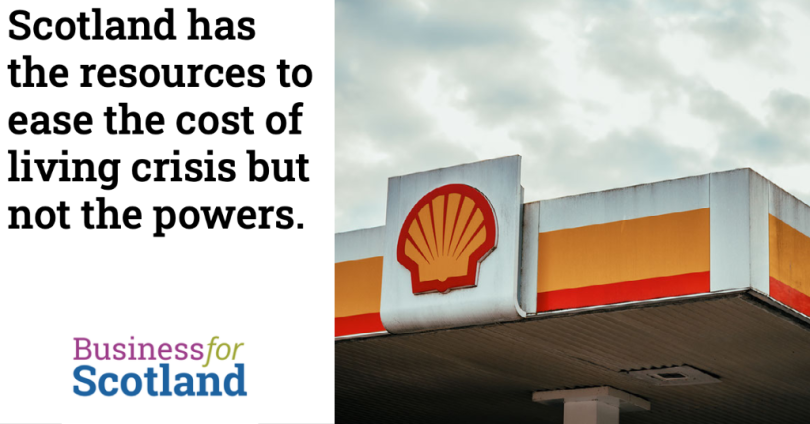Quarter 1 of 2023 has seen Shell add to its already enormous profits from 2022. This week the oil and gas giant reported that in the first three months of the year it recorded stronger than expected profits of £7.6bn. This is higher than its figure from the same period last year despite a slight fall in energy prices. A slip in the price of energy also doesn’t seem to have affected Shell’s main rival BP much either, the company boasted first quarter profits of £4bn.
This story is becoming a common one among the energy giants, who last year reaped the benefits of increased oil and gas prices due to the Russian invasion of Ukraine, to record their highest ever annual profits. This was all while the UK suffered under the crushing weight of record breaking hikes in energy costs throughout winter and into spring. Fuel price inflation hit 11.5% in the run up to December 2022 and has since come down slightly. However, gas price inflation remains stubbornly high at an eye watering 129%.
The UK Government has shown time and again that it is unwilling to appropriately tax oil and gas companies. This is why Scotland needs independence.
Scotland produces enough renewable electricity to meet all of its needs. But southern England is overwhelmingly dependent on gas, because of the policy choices of successive UK governments. An independent Scotland would have been able to act much more strongly to reduce energy costs.
Energy inflation bleeds into other sectors
The price of energy can become the catalyst for increased prices throughout the economy. All businesses require energy in one form or another to function and increasing its price will eventually have to be passed onto the consumer. 
As we move out of winter and spring and into summer, energy expenditure by households will fall. However, business will continue to feel the squeeze of the price increases. This is being felt most extremely in the food and drink sector where the prices of these goods have risen 19.1% in the year up to March 2023 and have soared by about 25% in the past two years. Multiple factors are to blame: Brexit, climate change and fertiliser costs among them. The UK Government may not be able to control for all of these factors but they can influence the price of energy within their own country and ease the burden on those who are struggling. The fact is, they have not done so. Rising energy prices for food producers ultimately increases the cost of production which will be passed onto consumers in the supermarkets and restaurants.
It is clear that food inflation is set to become the crisis of the summer, much the same as energy was during the winter.
Fighting energy inflation
Allowing those who sell the energy to reap in massive profits, over and above traditional expectations, at a time where the average household is struggling to pay their bills for said energy is categorically wrong, plain and simple. There is no economic or moral justification for allowing it to continue. We need a proper and significant tax on the profits of energy companies and we must use the revenue to ease the cost of living crisis and transition to a green, wellbeing economy.
The UK Government has implemented a half hearted windfall tax in the past. The Energy Profits Levy was introduced in May 2022 and applied only to profits made from extracting oil and gas from the UK (86% of which is in Scotland), not to the sale of oil and gas products. When the EPL was announced, Shell said that it did not expect to pay any windfall tax in 2022, despite announcing its highest annual profits in the company’s history. However, on February 2nd it announced it would be paying the UK Government £108 million in windfall tax, a certifiable drop in the ocean compared to the wealth it had just extracted from Scotland in the previous year.
With independence, Scotland can take full control of its fiscal levers. This will allow us to implement a proper windfall tax on oil and gas profits that covers not just extraction but also the sale of oil and gas on forecourts. Independence would also give Scotland the levers to end the loopholes which allow Shell and BP to downplay the profits they make in the North Sea by accounting for losses or spending on actions such as decommissioning platforms. Processes like this forced the UK Government to actually have to pay out tax rebates to the oil and gas companies worth £550 million in 2021/22.
Conclusion
Wealth is being removed from Scotland at an alarming rate. Due to our natural wealth, Scotland has the resources to ease the ongoing cost of living crisis. What we lack are the powers to do so. Scotland’s oil wealth will not last forever and we must make the transition to a renewable energy system for the sake of the planet and future generations. To do this, it is critical that we harness the remaining resources of the North Sea instead of having them extracted to line the pockets of energy giants. The path to Scotland as a renewables powerhouse lies only through independence – we must grasp it with both hands before it is gone forever.








